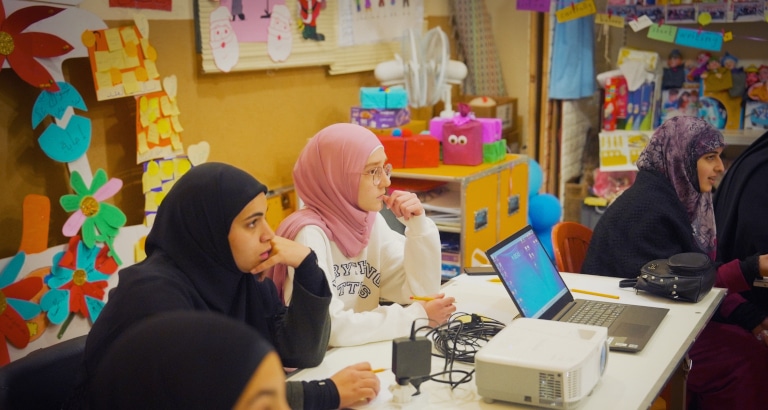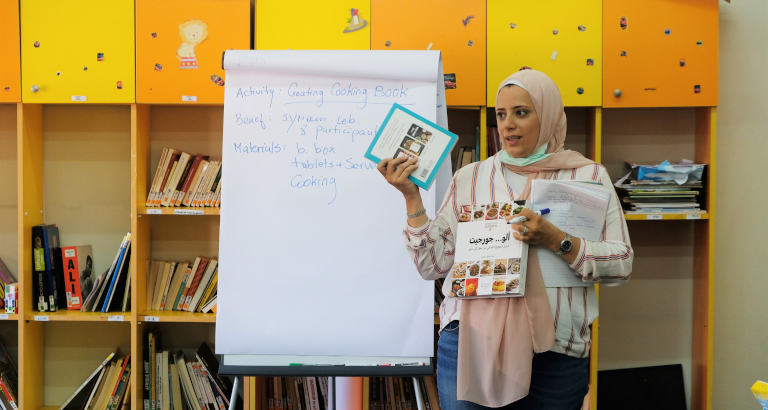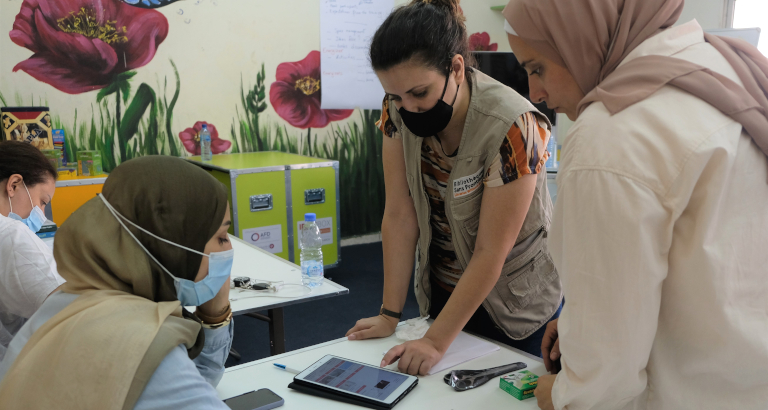In Lebanon, Bibliothèques Sans Frontières, in parternship with Amel, a local Lebanese association, has been strengthening access to education, autonomy and cohesion of local and refugee populations for the past two years due to the ongoing unprecedented economic and political crisis in the country. With the support of the French Development Agency, BSF has set up three Ideas Box libraries in Beirut, Khiam, and Kamed el-Loz. Thematic workshops are organized every day by Amel workers, allowing participants to regain self-confidence, learn professional skills, find a job, and ultimately to face the challenges they are experiencing.
Augustin Trapenard, ambassador of Libraries Without Borders, visited these Ideas Box pop-ups to meet the people who run them on a daily basis and to emphasize the essential role of education in emergency situations.



